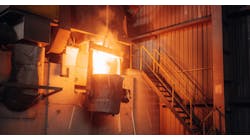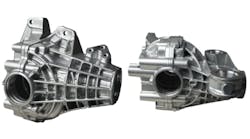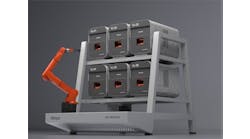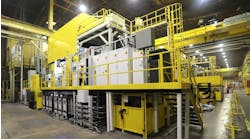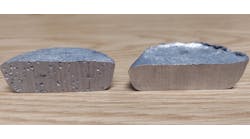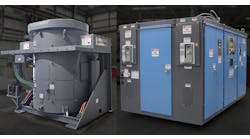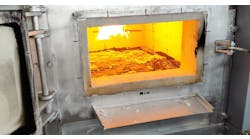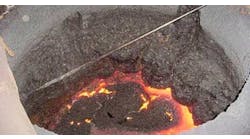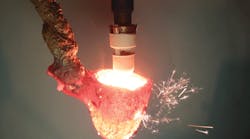SinterCast AB reports it has booked a new order from Tupy to supply an automated process control system for compacted graphite iron (CGI) production at its automotive foundry in Saltillo, Mexico. Tupy expects to start production for a new engine block next year, for an unnamed automaker. Eventually, it will reach a volume of 300,000 blocks per year, and SinterCast indicated it would be the world’s highest-volume production program for CGI cylinder blocks.
CGI is a specialty grade of cast iron that has greater tensile strength, stiffness, and fatigue strength than gray iron or aluminum, and it has gained wide popularity among engine manufacturers seeking to reduce weight, noise, and emissions for their designs.
Brazil-based Tupy is the world’s largest producer of cast iron cylinder blocks and heads, and supplies engine blocks to Audi, Cummins, Daimler, Ford, and several other automotive and commercial and off-road vehicle manufacturers.
Last year Tupy paid a reported $439 million to Grupo Industrial Saltillo for two ductile iron foundries: the Cifunsa foundry in Saltillo, Mexico — now Tupy Saltillo; and GIS’s 67% stake in the Technocast foundry in Ramos Arizpe, Mexico — now Tupy Ramos.
The former has produced CGI via the SinterCast process for several years. “Cifunsa was the first foundry to acquire a license for the SinterCast technology in 1996,” explained SinterCast president and CEO Dr. Steve Dawson. “More recently, we started production of the Navistar MaxxForce 7 cylinder block (a 6.4 liter V8 in CGI) on Line 3 at Cifunsa in 2010.
“The new product will also be produced on Line 3,” he continued, “but the higher volume will require a completely new installation. When the new installation is made, the current system on Line 3 will be moved to Line 4 to support commercial vehicle product development.”
The new installation for Tupy Saltillo is SinterCast’s System 3000 Plus package. It will control the base treatment of CGI metal, automatically; process control measurement; and complete final adjustment of magnesium and inoculant prior to casting.
Data collected by the System 3000 Plus, and the melting and molding operations, will be compiled in a database for process control and traceability. SinterCast noted the System 3000 Plus would be its “most comprehensive” installation to date, with capacity to produce up to 15 ladles per hour, and over 9 hours/day of production capability.
The System 3000 Plus will be shipped by year’s end and commissioned during Q1 2013.
Tupy is a long-standing SinterCast client, and the new CGI cylinder block will represent the eighteenth component it has in CGI series production.
"Following the initial SinterCast installation at our Joinville foundry during 2000, and the second installation at our Mauá commercial vehicle foundry in 2004, we are pleased to be the first foundry group in the world with SinterCast process control systems at three different production facilities, and with high-volume CGI capability on four different production lines,” stated Tupy president and CEO Luiz Tarquínio.
“The CGI process at our Saltillo foundry has been designed from a clean sheet of paper, incorporating Tupy's high-volume CGI production experience over the past decade and taking advantage of the latest technology in every aspect of the foundry process,” he said.
Dawson complimented Tupy's “contributions to CGI product development and its CGI series production experience,” which he credited with establishing automakers’ acceptance of CGI for component design. Components produce via the SinterCast process are installed in vehicles produced by Audi, Caterpillar, Chrysler, Ford, General Motors, Hyundai, Jaguar, Jeep, Land Rover, MAN, Porsche, Rolls-Royce Power Engineering, Toyota, VW, Volvo, and Waukesha Engine, and several more.
“The planned volume (at Tupy Saltillo), representing more than 300,000 engine equivalents, will establish new benchmarks for CGI foundry capability and machining,” he said.
